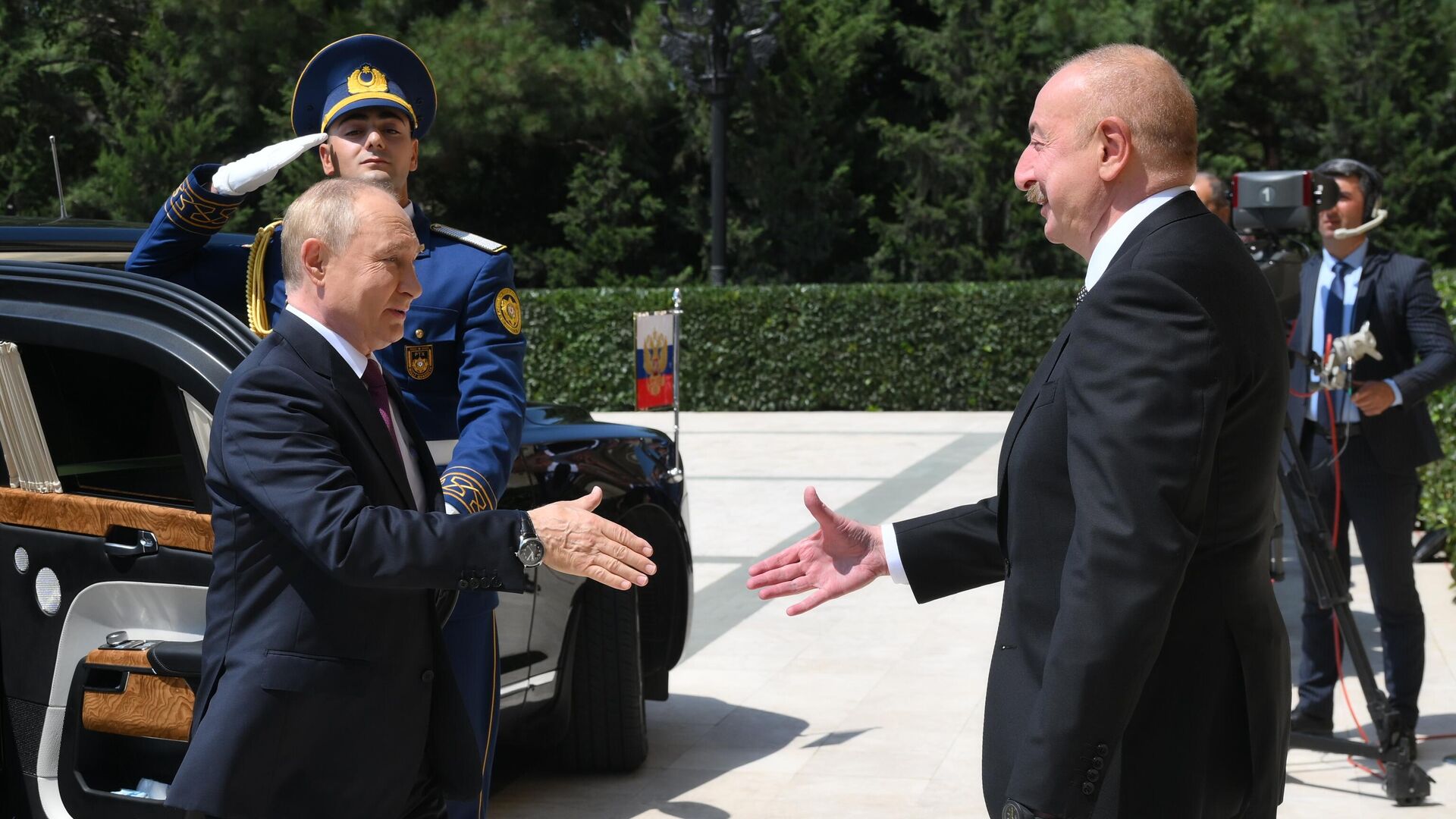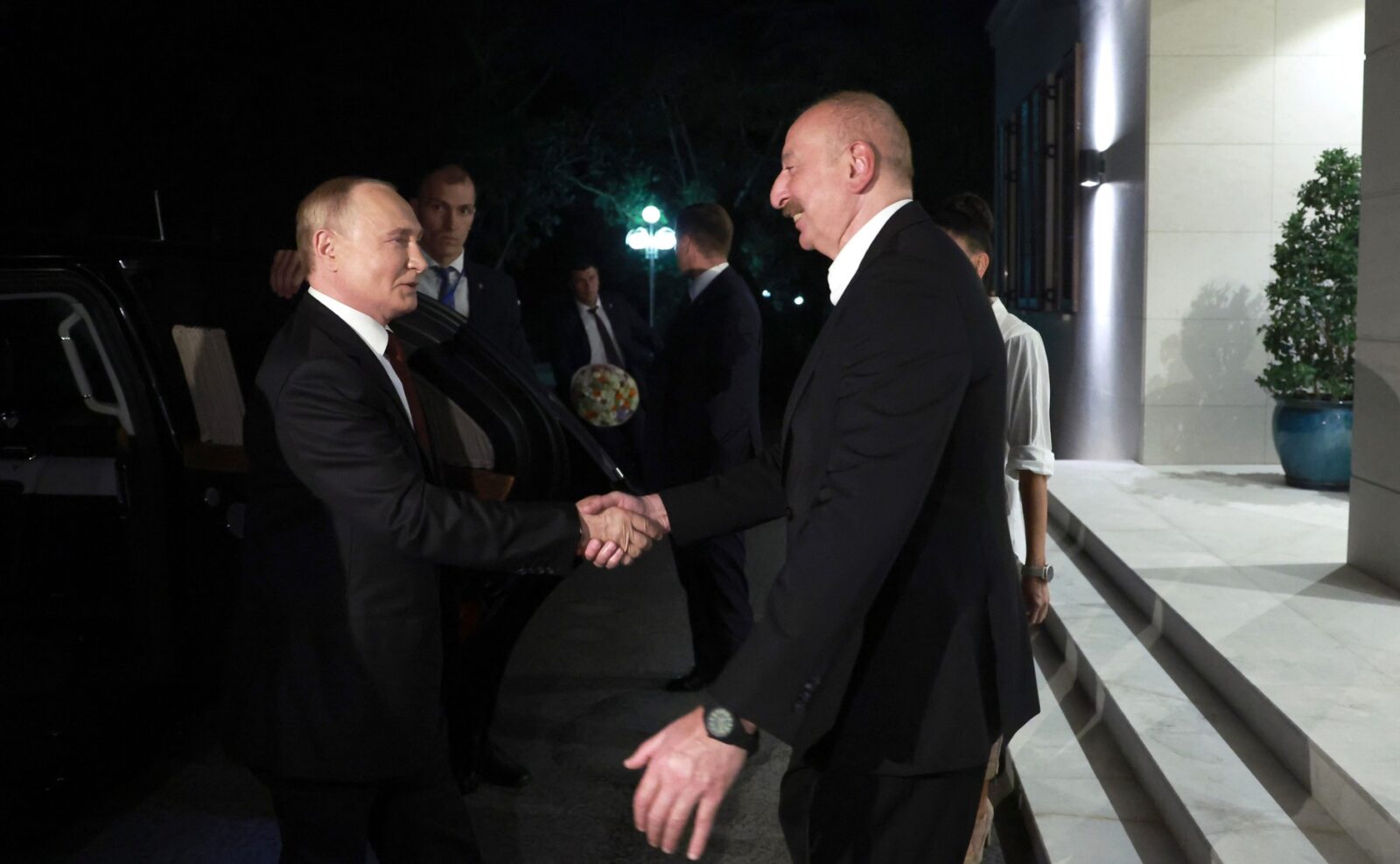
A day after Russian President VladimirPutin visited Azerbaijan, the South Caucasus nation Azerbaijan formally applied to become a member of BRICS, a group of emerging-market nations led by China and Russia.
Ayxan Hacizade, spokesman for the Foreign Ministry in Baku, said in a phone with Bloomberg on Tuesday.
The BRICS alliance, which originally included Brazil, Russia, India, China, and South Africa, has seen a notable expansion in recent years.
Azerbaijan is the latest applicant to the BRICS – a club that for years consisted of just five members and expanded with the inclusion of Iran, the United Arab Emirates, Ethiopia and Egypt this January. Saudi Arabia also considering joining the bloc.
The addition of Azerbaijan could further enhance the alliance's influence, particularly in the global energy market, as BRICS now includes some of the world's largest oil producers and accounts for over a quarter of global GDP.
During his visit on Monday, Putin met with Azerbaijani President Ilham Aliyev to discuss strengthening bilateral ties, particularly in trade and transportation.
Aliyev announced that $120 million had been allocated to boost cargo transport between Azerbaijan and Russia, underscoring the importance of their economic relationship.

In 2006, Brazil, Russia, India, and China initiated the formation of the BRIC alliance, aimed at bolstering the representation of developing nations in global affairs. This strategic coalition sought to amplify the influence of emerging economies within the international economic landscape, emphasizing cooperation, economic development, and the safeguarding of mutual interests on the global stage.
The inclusion of South Africa in 2011 expanded the alliance, prompting the adoption of the acronym “BRICS.” This acronym reflects the English initials of the participating nations: Brazil, Russia, India, China, and South Africa.
At the 2023 BRICS Summit hosted by South Africa, a pivotal decision was made to extend membership, welcoming Egypt, Ethiopia, Iran, Saudi Arabia, and the United Arab Emirates into the fold as of Jan. 1. This expansion, marking a significant evolution, is anticipated to usher in a new phase, possibly under the appellation “BRICS+.”
BRICS nations, including economic powerhouses like China and Russia, boast a combined population of 3.5 billion people, representing 45% of the global populace. Economically, these countries command a substantial presence, with their collective gross domestic product amounting to $28.5 trillion, accounting for approximately 28% of the world economy.
Additionally, the establishment of the New Development Bank (NDB) in 2014 underscores their commitment to financing infrastructure and sustainable development projects in developing nations, further solidifying their impact on the global stage.
Moreover, beyond their member states, BRICS engages in trade and extends economic assistance and loans to other developing nations, thus fostering broader political relationships and contributing to the evolution of a new global political landscape.